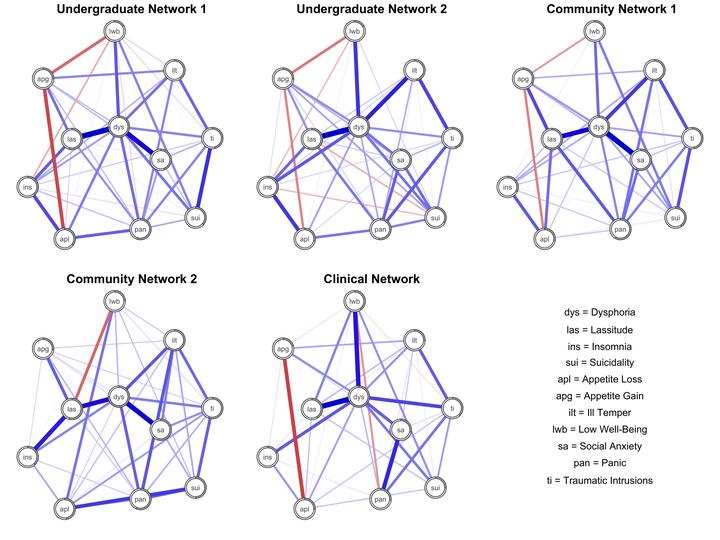The replicability and generalizability of internalizing symptom networks across five samples

Abstract
The popularity of network analysis in psychopathology research has increased exponentially in recent years. Yet, little research has examined the replicability of cross-sectional psychopathology network models, and those that have used single items for symptoms rather than multi-item scales. The present study therefore examined the replicability and generalizability of regularized partial correlation networks of internalizing symptoms within and across five samples (total N = 2,573) using the Inventory for Depression and Anxiety Symptoms, a factor analytically-derived measure of individual internalizing symptoms. As different metrics may yield different conclusions about the replicability of network parameters, we examined both global and specific metrics of similarity between networks. Correlations within and between nonclinical samples suggested considerable global similarities in network structure (rs = .53-.87) and centrality strength (rs = .37-.86), but weaker similarities in network structure (rs = .36-.66) and centrality (rss = .04-.54) between clinical and nonclinical samples. Global strength (i.e., connectivity) did not significantly differ across all five networks and few edges (0–5.5%) significantly differed between networks. Specific metrics of similarity indicated that, on average, approximately 80% of edges were consistently estimated within and between all five samples. The most central symptom (i.e., dysphoria) was consistent within and across samples, but there were few other matches in centrality rank-order. In sum, there were considerable similarities in network structure, the presence and sign of individual edges, and the most central symptom within and across internalizing symptom networks estimated from nonclinical samples, but global metrics suggested network structure and symptom centrality had weak to moderate generalizability from nonclinical to clinical samples.